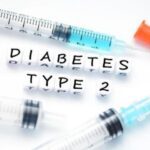Author:
- Dr. Madhur Verma, Assistant Professor, Dept. of Community & Family Medicine, AIIMS, Bathinda, Punjab;
- Dr Sanjay Kalra, DM (AIIMS); President SAFES, Bharti Hospital, Karnal, Haryana
India
healthysoch
Chandigarh, October 29, 2023:
Individuals who regularly add salt to their foods are 28% more likely to develop diabetes, suggests a recent study from China published in the Journal of Clinical Endocrinology and Metabolism.
This study was undertaken to determine any association between frequency of adding salt to foods and new onset of type 2 diabetes. It also examined whether genetic predisposition had a bearing on this association. For this they enrolled 368,137 eligible participants, age group 37-73 years, from the UK Biobank database. The frequency of adding salt to foods was self-reported via a food frequency questionnaire. On this basis, they were categorized into “never”, “rarely”, “sometimes”, “usually” and “always” groups.
A total of 10,981 new cases of incident type 2 diabetes were diagnosed over a median follow-up duration of 12.6 years. After adjusting for variables such as socioeconomic, lifestyle and metabolic risk factors, the risk of developing type 2 diabetes was found to be increased by 7% among participants who “sometimes” added salt with hazard ratio (HR) of 1.07 compared to participants who never/rarely added salt to foods. Those who “usually” added salt had 9% higher risk (HR 1.09), while the risk rose to 28% among those who “always” added salt to their foods (HR 1.28). No “multiplicative or additive interactions” that were statistically significant were noted between genetic predisposition and the frequency of adding salt to foods.
High dietary sodium is associated with hypertension, which increases the risk of heart disease. The other harmful effects of excess salt are osteoporosis, chronic kidney disease, and obesity. It has also been linked to gastric cancer. Noting that “the association between salt intake and incident type 2 diabetes has not been extensively researched” this study establishes an association between regular intake of salt with enhanced risk of type 2 diabetes, which was independent of genetic predisposition to type 2 diabetes. Salt consumption is therefore a modifiable risk factor and reducing salt in diet may prevent the onset of type 2 diabetes.
The WHO recommends less than 5 gm of salt (just under a teaspoon) per day for adults. However, Indians consume 8 gm of salt per day, which is much higher than the WHO recommendation, according to a recent ICMR study published in Nature.
Men consumed significantly greater amounts of salt than women (8.9 g/day vs 7.1 g/day). Salt intake was also higher among overweight and obese, current tobacco users and those with high BP. Rural areas also had significantly higher salt intake. What is of concern is that at least one-third of the people surveyed were unaware of the adverse effect of daily high salt intake on health.
Hence, there is a need to create mass awareness about the harmful effects of excess salt intake. In 2018, the Food Safety and Standards Authority of India (FSSAI) and the Health Ministry had jointly launched a country-wide social media campaign “Eat Right Movement” with the tagline “Aaj Se Thoda Kam” to reduce the sugar, salt and fat in packaged foods by 30% in the next three years. How successful this campaign has been is a matter of study. The message has to percolate down to the last mile to have a positive impact.
A low sodium diet is health-friendly. But it is equally important to strike a balance and not consume too little of salt, which has its own health implications.
healthysoch






